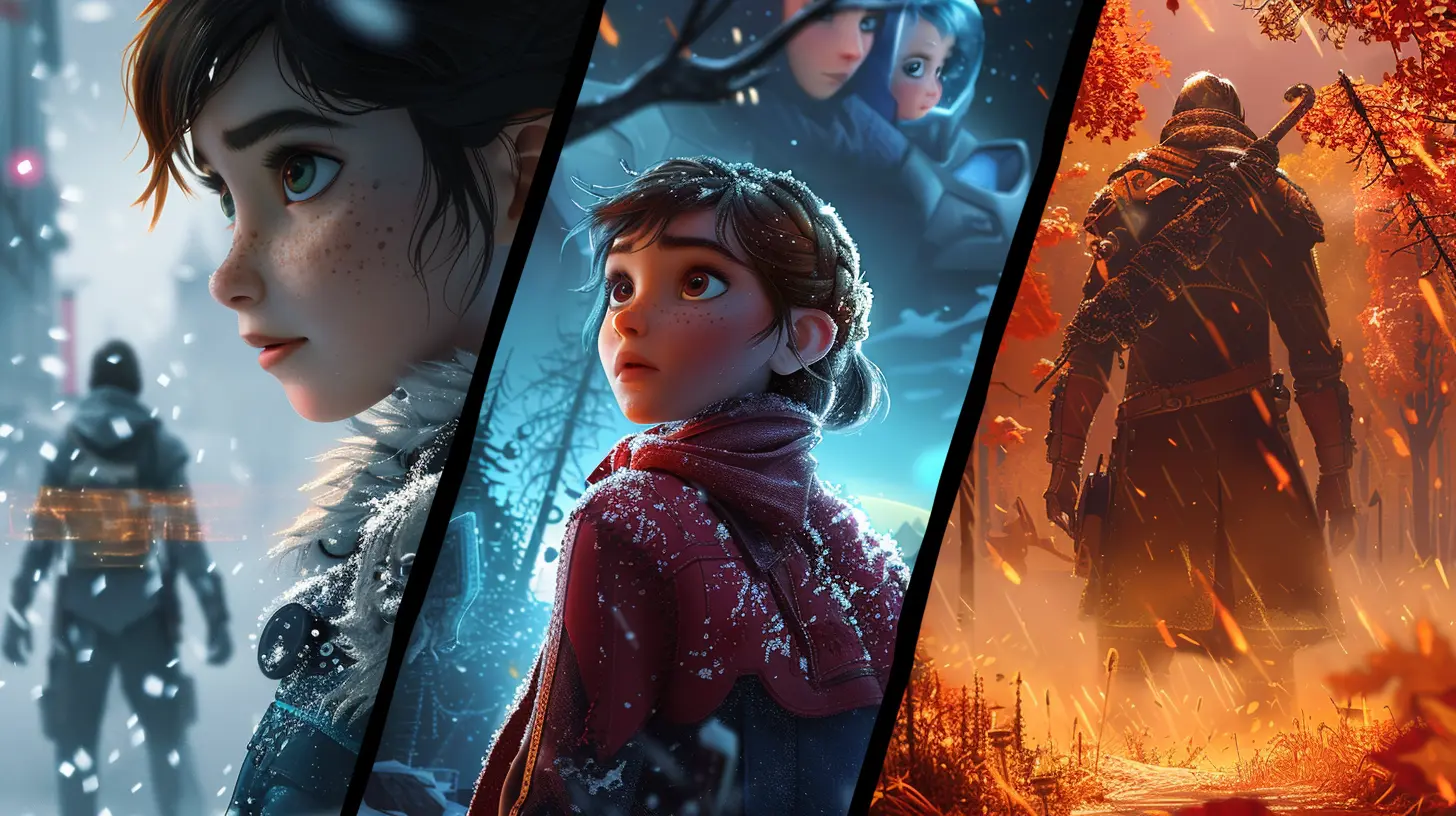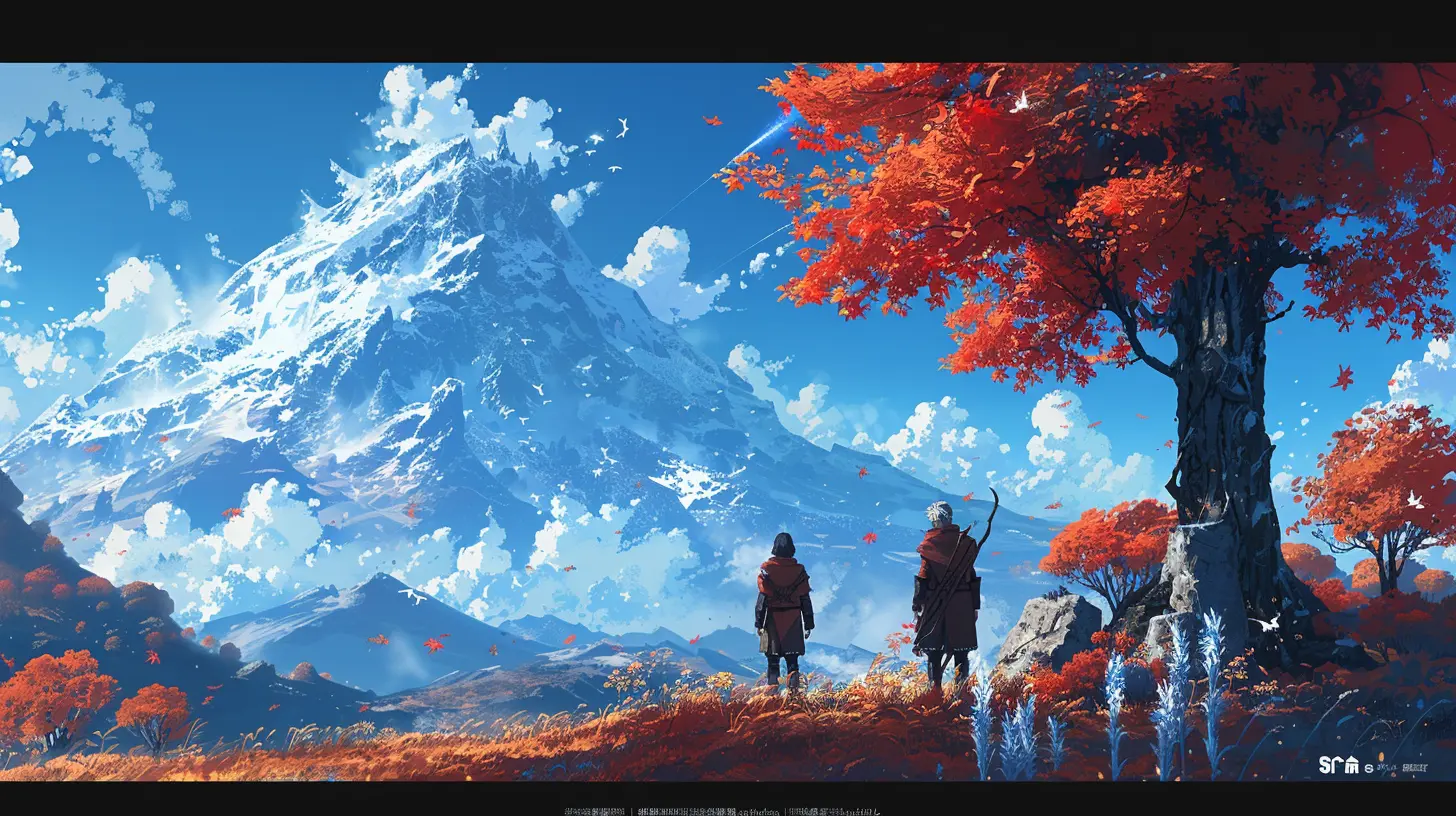Are Season Passes Changing How We Play Story-Driven Games?
13 October 2025
Gaming has come a long way since the days of single-cartridge adventures. These days, if you pick up a new title, especially a story-driven one, chances are it's launching with a season pass. But what does that mean for how we experience the game itself? Are season passes slowly reshaping the way we play, perceive, and love story-based games?
Let’s break down the rise of the season pass and how it's not just affecting our wallets—but also changing the very way we connect with our favorite characters, narratives, and game worlds.
What Is a Season Pass, Anyway?
Alright, let’s make sure we’re on the same page. A season pass is basically your all-access ticket to a game's future content. You pay upfront when the game launches (or even before), and you’re promised all the upcoming DLC (downloadable content) as it drops—usually over a period of months or even years.Seems fair, right? You get more of the game you love, and the developer gets guaranteed support. But here’s the catch—most of the time, these content drops are tied directly to the story.
So, what does that mean for narrative-driven titles?
The Classic Story Structure Is Evolving
Story-driven games used to have a clear beginning, middle, and end. You bought the game, played through it, and experienced a complete journey. Think "The Last of Us" or "Bioshock"—you got a full tale in one package.Now? Not so much.
With season passes, developers often break up that full story into chunks. You finish the main campaign, and you’re left with a “To Be Continued…” vibe. Maybe the protagonist’s arc isn't fully wrapped or a side character’s tale is only hinted at. The rest? Coming “in Season 2” or “DLC Episode 3.”
You’re no longer absorbing a full story in one go. You’re consuming it in parts—almost like watching a show week by week instead of binging the entire season on Netflix.
Episodic Gameplay—Not Just for Telltale Anymore
Telltale Games made episodic storytelling their signature, with titles like "The Walking Dead" and "The Wolf Among Us." Each episode dropped weeks apart, ending on cliffhangers that had us clutching our controllers in anguish.Now, thanks to season passes, more and more developers are adopting a similar model. You get the base game, then drip-fed expansions that extend the story, deepen the lore, or throw your characters into completely new arcs.
It’s engaging, sure—but also a bit frustrating.
Instead of a full cinematic experience, you get a piecemeal one. You’re constantly waiting for the next piece of the puzzle.
Who else has stared at a "Coming Soon" screen and sighed?
Pacing Problems and Emotional Disconnect
Here’s the thing about storytelling—it depends heavily on pacing. A great narrative builds tension, develops characters, and lets the emotional beats hit at just the right moment.But when a story is broken into chunks, and those chunks are released months apart, that pacing? It's toast.
Take this example: You play a gripping climax in the base game, then wait three months for the DLC that explains what happened to your favorite sidekick. By then, the emotional intensity has cooled off. You may even forget some story details. The moment just doesn’t hit the same.
It's like watching the first half of a movie, taking a six-month break, and then trying to pick up where you left off. Awkward, right?
The Good Side of Season Passes (Yes, There Is One)
Okay, let’s not bash season passes completely. When done right, they can seriously enhance a game’s world. Think of them as bonus chapters, the “director’s cut” of an already rich story.Games like "The Witcher 3" and "Horizon Forbidden West" handled their DLCs—available via season passes—with finesse. They offered meaningful stories, new lands to explore, and surprising character developments that didn’t feel like scraps but rather full courses.
In these cases, a season pass feels like a thank-you gift rather than a paywall.
Replayability vs. Fragmentation
On one hand, season passes can keep players coming back. Every few months, you return to a familiar world with fresh content. It extends the lifespan of the game.But there’s a flip side to that coin—fragmentation.
Many players complete the main game, then uninstall and move on to the next big title. When DLC finally drops, they may not return. Or worse, they might come back and feel lost, the continuity shattered.
Season passes bank on loyalty—but attention spans in gaming today? Not so loyal.
Are Developers Holding Back Content?
It’s a hot debate. Some gamers feel like season passes are just a clever way to sell content that should’ve been part of the base game from the start.Ever played a game where a key plot point is left unresolved, and then, surprise! It’s tied up neatly in the first DLC? Feels a bit like paying extra for the ending, doesn’t it?
Of course, game development is brutal and expensive. Studios use season pass funding to support dev teams and push boundaries. But as players, it’s hard to shake that nagging feeling—are we getting an incomplete product?
The Fear of Missing Out (FOMO) Is Real
Let’s talk truth—season passes mess with our sense of urgency. Miss a content drop, and suddenly your favorite character is trending on Twitter due to some massive plot twist—you haven’t even played it yet.This creates a sense of FOMO. You feel pressured to keep up, to not miss the latest piece of the story.
In a world where spoilers are everywhere (and fast), story-driven games with staggered drop dates become minefields. It's less about savoring the narrative and more about staying ahead of the spoiler storm.
How This Impacts Game Reviews and Community Discussion
Story-driven games used to have a singular “moment” when everyone played, finished, and discussed the ending. Think of the buzz around the finale of "Red Dead Redemption 2" or "God of War." Those watercooler conversations? Gold.Season passes scatter those moments. When half the players are still finishing DLC Part 1 and others have moved onto Part 3, community discussion gets diluted. Reviews become outdated quickly. It’s hard to say when a game is “complete” anymore.
And that? That kinda sucks.
Are Season Passes Here to Stay?
Yep. Hate to break it to you, but they’re not going anywhere. Developers love them—not just for the extra income, but for the chance to build on their games long after launch. And let’s be honest, most players buy them.So instead of resisting, maybe the better question is: How can we make them better?
More transparency, better pacing, emotional continuity, and meaningful content—those are the keys. If season passes are going to be part of the story-driven landscape, let’s at least make them feel like chapters in a great book, not random notes stuck to the end.
Tips for Navigating Story-Driven Games with Season Passes
1. Wait for the Complete EditionIf you’re someone who values a full, uninterrupted narrative, hold off until the full set of content has been released. That way, you’ll experience the story as a cohesive whole.
2. Stay Organized
When returning to a game after months, take time to recap the plot and mechanics. It’ll help you reconnect emotionally and make sense of the story beats.
3. Engage with the Community
Reddit, forums, and discussion boards often keep detailed timelines and summaries. Use them to stay “warm” between content drops.
4. Support Respectful Developers
Not all season passes are equal. Support devs who deliver quality DLC without gutting the base game.
Final Thoughts
So, are season passes changing how we play story-driven games? Absolutely. They’ve shifted the way narratives are delivered, how we pace our gameplay, and even how we emotionally engage with characters.Sometimes it feels like an upgrade. Other times? A distraction.
But one thing’s for sure—the way we experience stories in games is evolving. And whether we like it or not, season passes are a big part of that journey.
So next time you buy a story-driven title, ask yourself: Do I want to play now or wait until the whole tale unfolds?
Either way, the controller’s in your hands.
all images in this post were generated using AI tools
Category:
Season PassesAuthor:

Leandro Banks
Discussion
rate this article
1 comments
Arden Frank
Oh, absolutely! Because who wouldn't want to pause their emotional journey to grind for a shiny new costume? Nothing says "immersive storytelling" like a side quest for virtual loot! Sign me up!
October 24, 2025 at 3:01 AM

Leandro Banks
I understand your frustration! Many players feel that side quests can detract from narrative immersion, but others enjoy the balance of gameplay and storytelling. It's a complex evolution in gaming!


